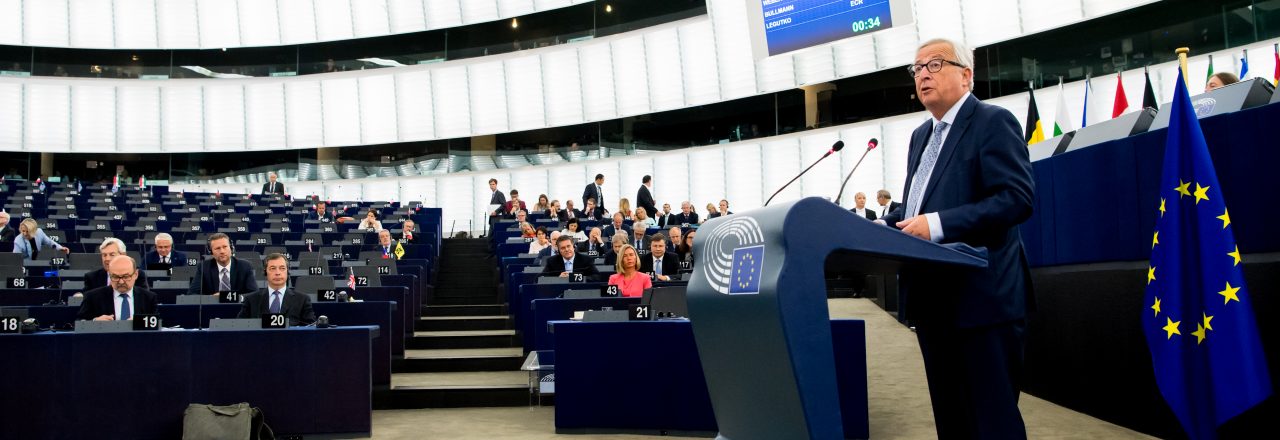
Juncker’s speech at the State of the Union 2018
European Commission President Jean-Claude Juncker addressed to the European Parliament in Strasbourg his fourth and last annual State of the Union speech. Among the highlights of the speech were the issues of economy, migration, EU nationalism and Africa. On Security, Mr. Juncker said “We will not militarise the European Union. What we want is to become more autonomous and live up to our global responsibilities,” adding that the only way to face internal and external threats is by being united. On migration, he committed to further developing the European Asylum Agency to offer more support to member states processing asylum seekers and stressed the important role of Frontex, the European Border and Coast Guard Agency. On this matter, he stressed that “arrivals have been drastically reduced down 97% in the Eastern Mediterranean and 80% in the Central Mediterranean” and that “EU operations have helped rescue over 690,000 people at sea since 2015”. European Commission President strongly condemned terrorism and called on Internet platforms to develop new methods to police content announcing new rules to get terrorist content off the web within one hour. On Brexit, he said “after the 29th of March 2019, the UK will never be an ordinary third country for us. UK will always be a very close neighbour and partner.” However, on the economic level and in reference to the UK, Mr. Juncker stressed “if you leave the Union, you are of course no longer part of our single market, and certainly not only in the parts of it you choose.” Mr. Juncker addressed also the youth unemployment rate saying it “is the lowest it has been since the year 2000”. On the EU foreign policy, he didn’t mention the Euro-Mediterranean region, however he tackled some issues like human rights abuses by China, arms embargo on Belarus, sanctions on Venezuela, the agreement with the US and drew special attention to Africa. Mr. Juncker called to build a new alliance for sustainable investment and jobs, because “Africa does not need charity, it needs true and fair partnerships. And Europe needs this partnership just as much”. European Commission President proposed to move to qualified majority voting in specific areas of the EU external relations such as human rights issues and civilian missions and even on certain tax matters.
- The Euromed news are edited by the team of the Euro-Mediterranean Policies Department of the European Institute of the Mediterranean -


